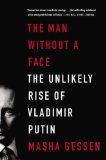Summary | Excerpt | Reviews | Read-Alikes | Genres & Themes | Author Bio

Calamity in the Caucasus
by Carlotta Gall, Thomas de WaalA combination of investigative journalism and historical overview that emphasizes the Chechens' role as the long-oppressed victims of Russian imperialism.
In 1994 Russian president Boris Yeltsin ordered an invasion after Chechnya's intractable president, Johkar Dudayev, declared independence for his warrior nation. The result was a disastrous three-year war that took the lives of tens of thousands of civilians and soldiers, destroyed the Chechen capital of Grozny, and created a crisis of leadership for Yeltsin.
Gall and de Waal, who covered the war for the Moscow Times, offer an authoritative portrait of combat and a convincing explanation of the origins of the disaster. They deftly put the war into its historical context, describing the Chechens' forced incorporation into imperial Russia and the Soviet Union. Parallels are drawn between policies under monarchist and Soviet rule, and special attention is paid to Stalin's devastating deportation of the Chechens to Central Asia in the late 1940s, an event that contributed greatly to the Chechens' determination to gain independence.
By covering such background, the authors provide a necessary glimpse into the lasting sense of injustice and anger that has spurred many Chechens into action against the Russian army. But while their sympathies clearly lie with the colorful Chechens, the authors remain objective in their assessment of Chechnya's questionable leaders and the corrupt nature of modern Chechen society. Thus, both Yeltsin and Dudayev are assigned some of the blame for hastening the disasterthe former for his bullying nature and misunderstanding of the Chechens, the latter for his Bolshevik tactics.

If you liked Chechnya, try these:

A Constellation of Vital Phenomena
by Anthony Marra
Published 2014
A brilliant debut novel that brings to life an abandoned hospital where a tough-minded doctor decides to harbor a hunted young girl, with powerful consequences.

by Masha Gessen
Published 2013
The chilling account of how Vladimir Putin, a low-level, small-minded KGB operative, ascended to the Russian presidency and destroyed years of progress to make his country once more a threat to her own people and to the world.